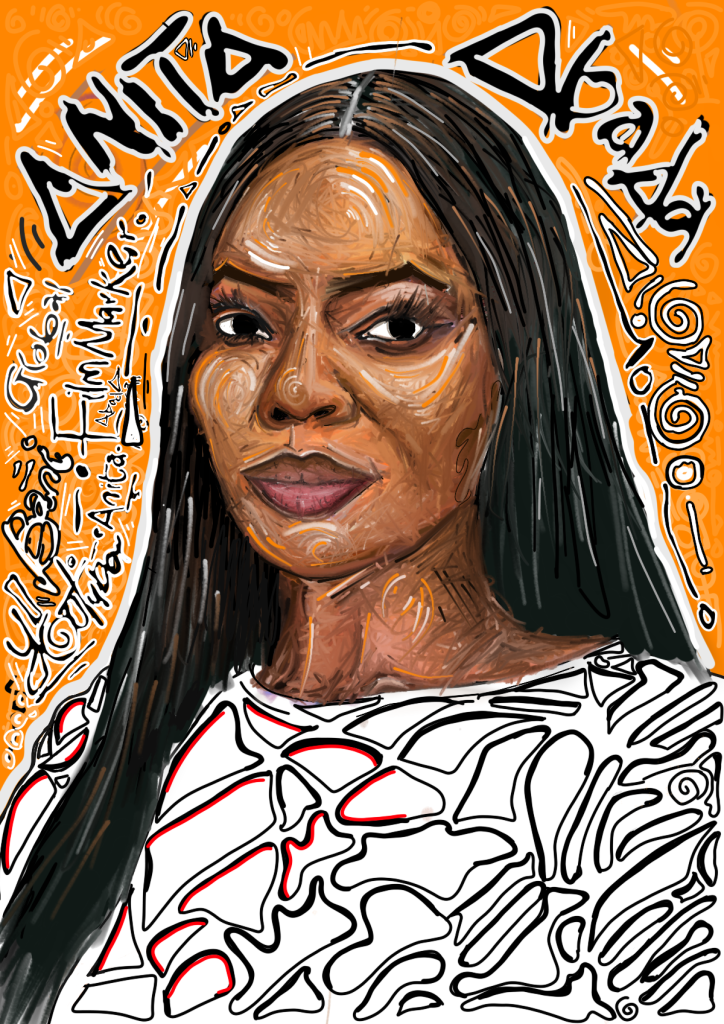Nigeria’s film industry has long thrived on scale and improvisation. Nollywood grew from low-budget shoots distributed on VHS and VCD, sold in street markets (remember Iweka Road, Onitsha? Ebinpejo Lane, Idumota, Lagos?) and broadcast on DSTV. Today, cinemas deliver the blockbusters. Streamers like Netflix and Prime Video do prestige but have selectivity. And YouTube has its endless selection of dramas and comedies watched by millions, many made with little concern for polish. More recently, older prestige titles have been migrated to YouTube as well.
At the centre of all these is a grind invisible to the everyday viewer. Directors juggling investors’ demands against their artistic ambitions, producers chasing distribution, and crews stretching every naira, because that’s what it ultimately comes down to. Money makes the world go round.
This was a backdrop for my interview with Anita Abada, an award-winning Nigerian filmmaker.
We started with YouTube. “Many people have asked why I haven’t started a YouTube channel yet,” she told me. “Everyone is doing it, and you could make good money from it.” That kind of viewing experience, she argued, is not what she is making films for, at least not at the moment. “My films are very different. For the next one, I will be spending a really good amount in dollars on it… I don’t think YouTube is the business model for me right now as most YouTube films are made on very stringent budgets.”
To be clear, her YouTube take is pragmatic, not snobbish. The platform is useful for reach, but the economics do not support the kind of film she is trying to make.
Building global projects
Her next projects make the ambition clear. The first is supposed to be a Nigeria–Germany collaboration, shot between Lagos and Hamburg. She plans for casting to mix Nigerians, Germans, and actors from elsewhere. “I want it to be a global film,” she said. “…variety that gives it global appeal.”
The second is a Nigeria–India story, and the calculation is as much financial as artistic. India still has close to nine thousand cinema screens. “If you add that to what I can get in Nigerian cinemas,” she explained, “the chances of making money back are much higher.”
All of this is born of experience. Her previous feature, Ba Ni, went to festivals but left her chasing distribution. “I made it as a festival film and couldn’t exploit it anymore because of the theme,” she said. “I sold it, I made some money, but it took a long time.” For her new works, she is reversing the order: distribution mapped from early on, story choices made with cinema in mind. “I don’t want to compromise quality,” she said, “but I’m also concerned about the business of films.”

Illustration by Agala Silvanus Oyi
The producer’s toolkit
Abada hunts partners on LinkedIn. Co-producers and financiers. “When I told people I found my co-producers on LinkedIn, they were shocked,” she mentioned. “But LinkedIn has been very good to me.”
For pitch materials, she turns to Canva. Scripts are drafted in Final Draft, though she advises holding off until financing firms up, unless a script is necessary to convince investors. For festivals, she relies on FilmFreeway, which she credits with helping her find international opportunities.
She is also testing newer platforms. Plot Weaver, which can ingest a script, analyze structure, and flag weak points. Also promises to automate parts of development and production management. Roll Pay Africa, another recent tool, offers a digital system for disbursing funds on set.
Firing fast
Abada entered the industry young, ambitious, and convinced that if her work was strong enough, respect would follow. It didn’t always. She has had crew members drag their feet, in one case, try to undermine her with investors. At first, she tolerated it, worried about seeming harsh. That tolerance nearly broke her.
“I was almost dying from that project,” she recalled. The turning point came with the recognition that no film is worth her sanity. “What I care about is my mental space and the project coming out good. If I notice bad energy, I fire immediately and bring somebody else in.”
It sounds blunt, but film sets are pressure cookers where every wasted hour multiplies costs. Most productions shoot on thin margins. Add to that, the cultural hierarchies still common in many Nigerian spaces where age and seniority still command deference. Now imagine a younger female producer telling older men what to do?
To succeed, Abada learned, she had to protect the project even at the cost of a messy exit.
She also shares practical and strategic insights from this experience. She now insists on hiring her own crew. “If a person brings in their own people, their loyalty rests with that person,” she said. “When problems come, you lose the whole group.” By staffing herself, private loyalties over accountability to the entire production can be curbed. Firing can also be a part of the craft rather than a personal failing. Losing a day or two to bring in replacements, she argues, is less expensive than years’ worth of work and credibility you can lose to sabotage.
She summarizes her recent approach thus: Respect people, yes. Make room for collaboration. But do not let one person’s energy sink the ship.
It’s all part of her shift to being a business-minded producer. “I used to be a creative before, without too much consideration for business because I always thought the business part would add up by itself once you have a great project,” she said.“Now I’m a businesswoman, a full-time businesswoman in film.”
Keeping scope in view
For inspiration, she mentioned Ava DuVernay for ambition and clarity. Shonda Rhimes for the way her casts look like the world. Scope is the common thread. Abada wants Nigerian stories that can travel, with audiences in Lagos, Hamburg, Mumbai and across the globe seeing themselves in the same frame.



